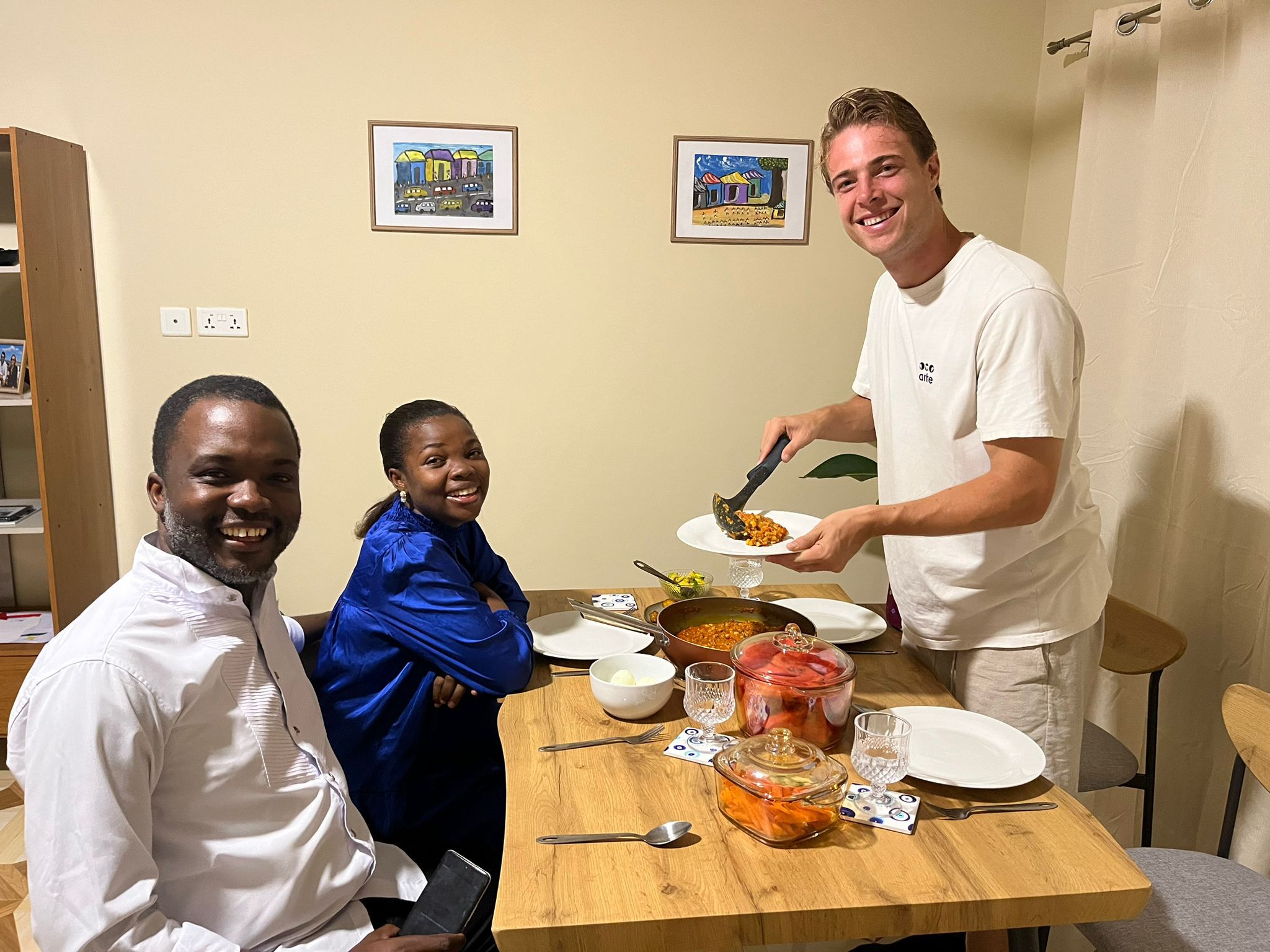Recap: from concept to realization
Dec 2, 2024
From a small pilot to securing funding, and from building our facility to starting up production: this year has been all about laying the foundation for Chalé Spirulina. What started as an idea has now become a reality. The journey has been anything but ordinary - filled with exciting milestones, unexpected challenges, and invaluable lessons. Looking back at the past year, it feels like we've been on a rollercoaster that has taken us closer to our vision of making a positive impact through spirulina production.
After two short visits in 2023 and a lot of preparations with KITA (Kumasi Institute of Tropical Agriculture) and Alga.farm, I (Floris) travelled to Ghana on January 12th. Dela and Samuel, a Ghanaian couple who I met, offered me to stay with them for three months. Perfect, since their place was only a 10 minute bus ride away from KITA, where the production pilot was conducted. Waking up and suddenly living in a Ghanaian village was quite a culture shock, but the welcoming people in the community made this easy to overcome. Looking back, the first month was very challenging, since it was the first time that we actually produced spirulina in Ghana with the technique developed by Alga.farm. Together with the KITA students, we had to build a pilot construction with sand, stones and other local materials. Although we shipped a lot of parts for the bioreactors, we had to buy a lot of materials for the set-up itself at Kejetia Market, which is located in the heart of Kumasi and is said to be the biggest market in West Africa. On the plane to Ghana, I took a jerry can with 15 liters of spirulina culture. Luckily, it survived the trip and the customs did not ask too many questions. When I arrived in Ghana, we had to start cultivating the spirulina in drinking water tanks right away, as we needed to make sure the culture stayed in good condition. After a lot of long days, the pilot set up was ready and we could start testing the spirulina growth in our bioreactors for two months. The pilot was successful and gave us a lot of valuable insights, but at least as important was the time I spent with Dela and Samuel. They gave me a better understanding of life in Ghana and the local communities around Kumasi. Moreover, they introduced me to a lot of different people and showed me how to cook with the locally available food products. My stay at their place made the first quarter of 2024 a perfect start of the year.


